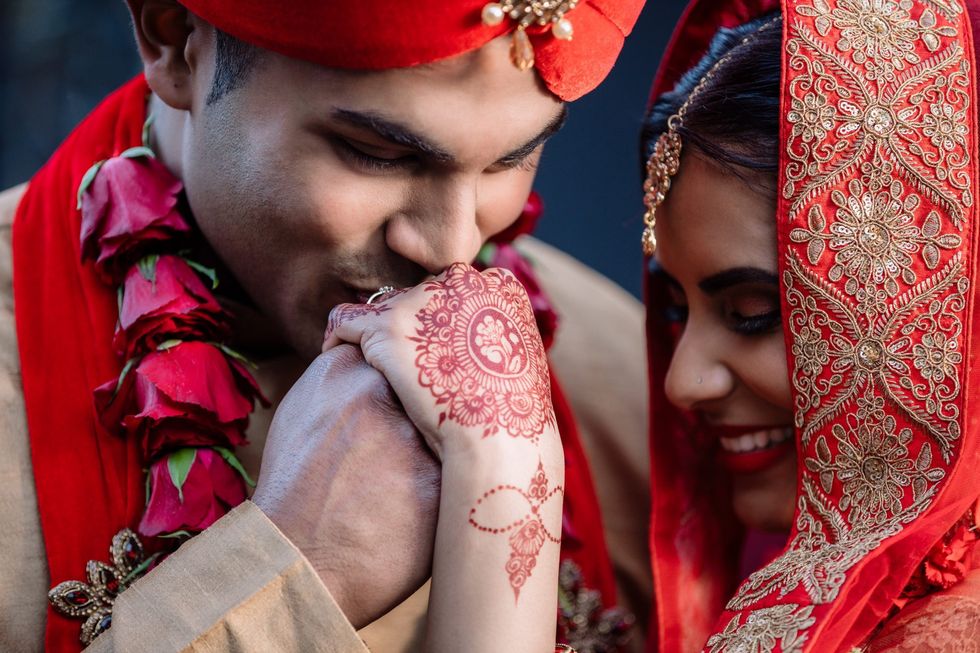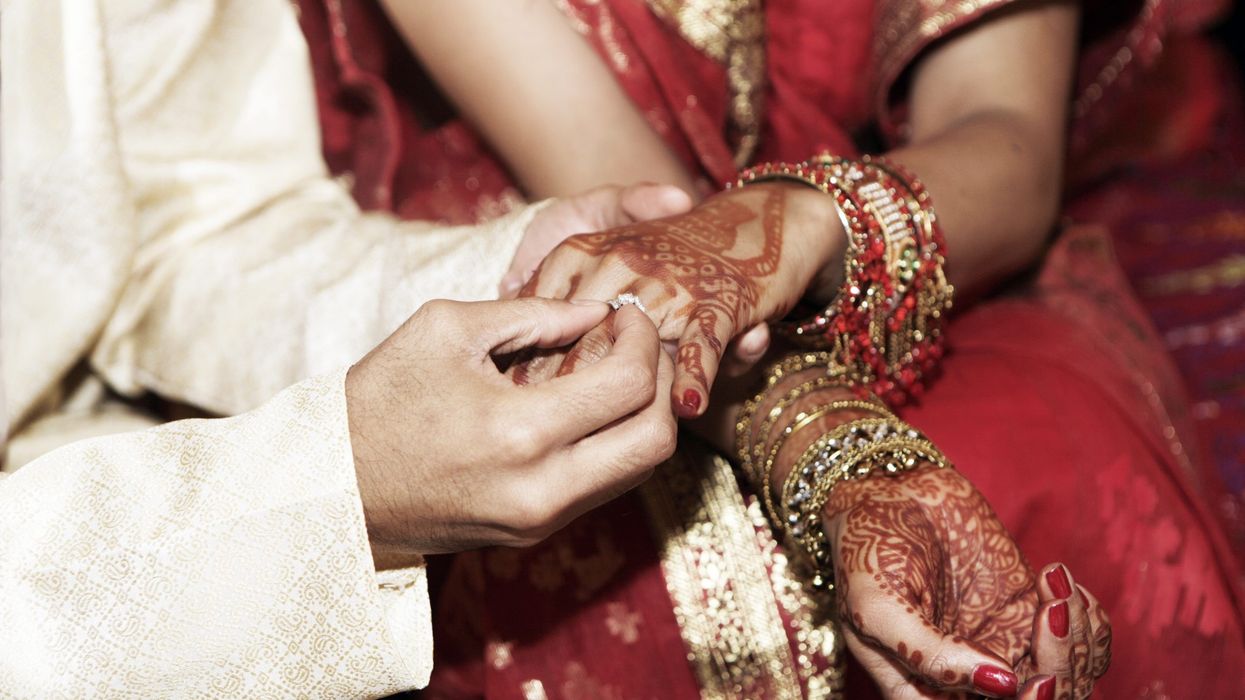by LAUREN CODLING
THE Asian wedding industry has been “forgotten” by the UK government throughout the pandemic, industry insiders said, as many warned their businesses are in danger of closing.
It is estimated the wedding industry in the UK is worth around £10 billion. An average Asian wedding is thought to cost around £50,000-£100,000. Three individuals who worked extensively in the industry have revealed to Eastern Eye the anxieties they faced, as they revealed they had to let staff go amid their financial struggles.
Ambreen Ahmed has been working in the wedding industry as a make-up artist for around 14 years. Her business Ambreen Makeup typically covers around 100 weddings per year, she said, which makes up the majority of the clientele. Since the pandemic began last March, Ahmed estimated her business has only made around 25 per cent of its typical income.

The constant changing of lockdown restrictions has been a challenge, Ahmed said. “It’s been a roller coaster,” she explained. “It’s been really disheartening when we’re being told that we can work, and then we’re told that we have to stop again. We feel like we’re going back and forth, and there’s not enough clarity.”
Neal Khanna is the owner of Asian catering business The Clay Oven, which has been running for more than four decades. He believes the government has not done enough to support the industry and needs to put protective schemes in place. He has urged for a wedding revival fund to support wedding businesses. “There needs to be some guidelines and frameworks or the industry will be destroyed,” he said. “A wedding is such an important part of our Asian culture and we do feel that we’ve just been ignored. I know a lot of suppliers have just disappeared or they’re on the verge of disappearing. You just think, how long can people survive?”
Jas Johal is the director and founder of Kudos Music, a leading event entertainment and production company. Although the business also organises conferences, exhibitions and galas, Kudos is known within the wedding industry. However, Johal has not received any government grants or rate relief, as his local council have declared his business as customer facing. Johal claims he is aware of other companies, similar to his, which have received rate relief from their local authorities. “I’ve been at real loggerheads with the council and government on this,” he said. “The entire situation is putting me through a lot of emotional stress. I’ve run this company since I left university and put everything into it.”
With no other option, the entrepreneur has had to make some of his employees redundant. Over the course of the last 12 months, he estimated around 30 people have lost their jobs. “It’s really easy for the council to treat you like a number, but we’re with each other all the time – we do jobs and events together, work together, solving problems together,” he said. “I’ve had to have really sad conversations
with my staff.”

All three agreed the Asian wedding industry has been forgotten by government. “Considering the impact we have on the economy, I do feel that they’ve forgotten about us,” Ahmed said.
Khanna added: “The wedding market in itself is huge and Asian weddings are a big contributor to it. Asian weddings generate a lot of spending as the event is a huge part of our culture.”
Government advice to change careers is frustrating too. Ahmed has worked as a make-up artist since she was in her late teens. “That’s all I’ve ever known,” she said. “I’m not going to just stop and pick up a new career.”
Johal shared similar frustrations, claiming many of his employees were becoming discouraged with the industry. He worries the sector will lose talented workers as they are wary of having no secure income. “We are starting to lose a lot of talent and that’s quite scary,” Johal admitted. “A lot of people we’ve trained up for 10 years have become brilliant lighting technicians, video technicians and carpenters. But they’re so disheartened (by the current situation) that they just want to leave the industry.”
Khanna is also the founding member of the Asian Wedding Association UK (AWAUK), a trade body set up as a direct result of the pandemic. The group have made numerous efforts to appeal to government for more support. In November, the group secured a key debate in parliament. However, Khanna claimed the debate did not give any clarity on the ongoing situation. “The business minister (Paul Scully) heading the session closed it without giving any real clarity or any solution,” Khanna recalled. “Nor did he really show any real urgency or provide further guidance and support.”
However, there have been further moves to engage with authorities. In December, the UK Weddings Taskforce was formed to represent wedding businesses in discussions with the government. “The task force will speak directly to the government and outline issues and problems that we’re facing,” Khanna explained.
The business owners admit the future is uncertain. Although Khanna has received some inquiries from potential clients, they have been sparse. He claimed every customer has voiced concerns about refund policies and cancellation costs. “The government needs to put something together where customers can have confidence in the industry and form protection for businesses,” he said. “We’ve all paid millions of pounds into insurances and we haven’t got any benefit from it.”
Johal echoed similar sentiments. “Everyone had assumed the vaccine announcements in December meant that we would all be back up and running by April,” he said. “I think that is unrealistic, especially as there is no confidence in the market now.”
In response to Eastern Eye, a government spokesperson said: “We know this is a very difficult period for wedding businesses. The current restrictions are essential so we can control the virus, protect the NHS and save lives, while enabling businesses to trade and weddings to go ahead in many regions.
“Wedding businesses can access the government’s wide-ranging package of financial support worth £280 billion, including the extended furlough scheme, various loan schemes, grants for businesses
forced to close of up to £3,000 a month, with a top-up of up to £9,000 for the current period of national lockdown. In addition, discretionary grants from local authorities can support businesses which are not closed but are severely affected by restrictions.”




